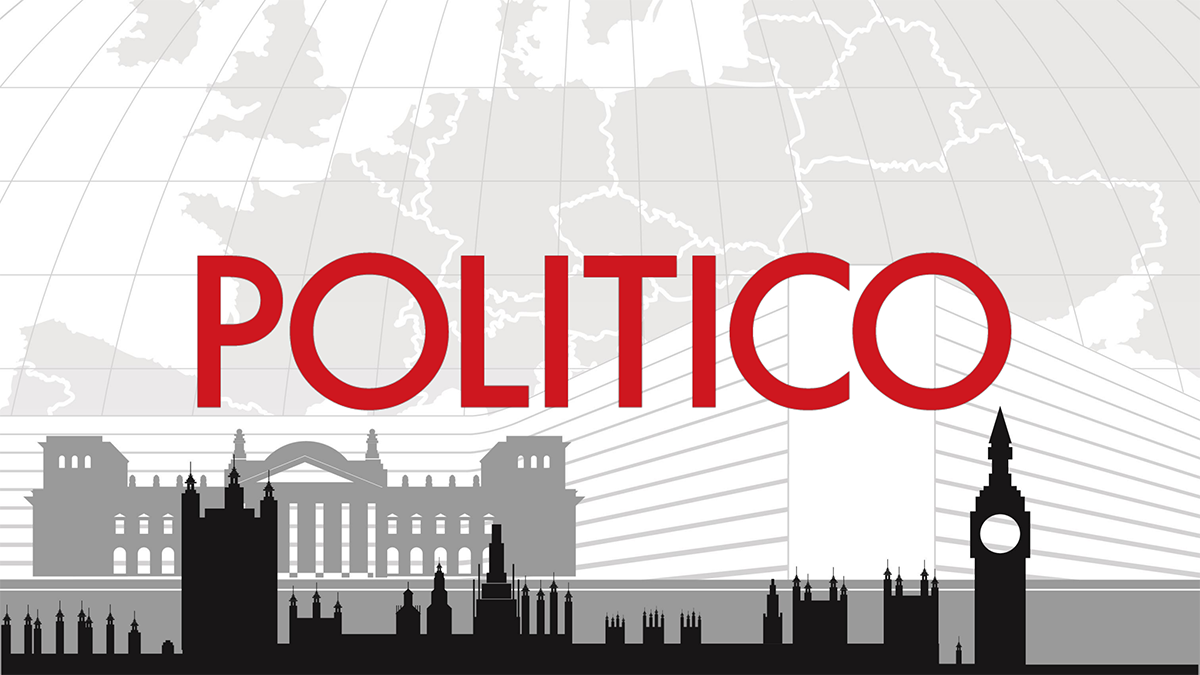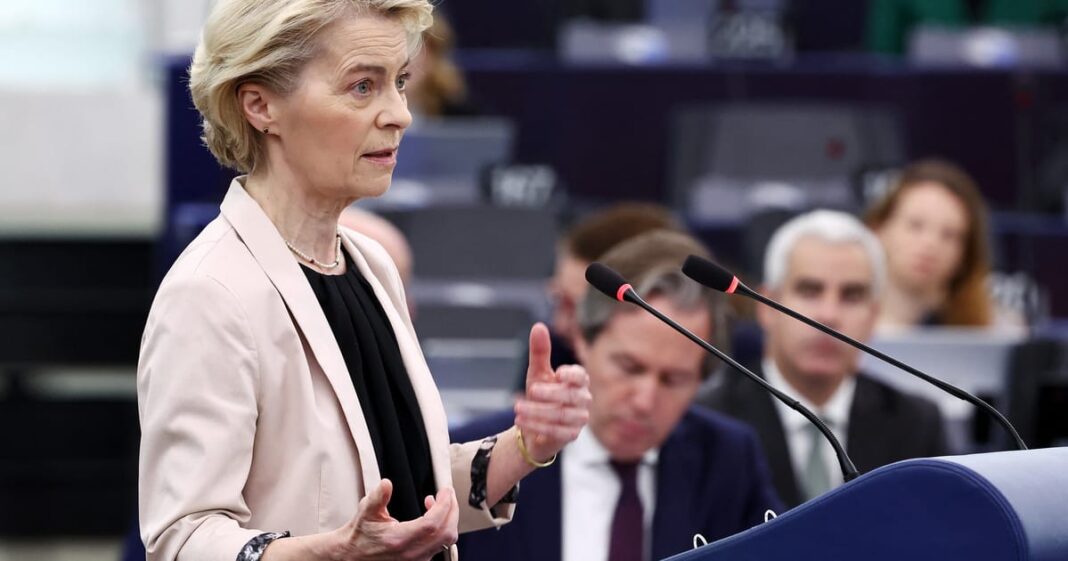“The Digital Tipping Point: EU Unleashes Compliance Crackdown on Tech Giants”
In the ever-evolving landscape of digital commerce, a seismic shift is underway. The European Union has officially ignited a firestorm of change with the implementation of the Digital Services Act (DSA), a groundbreaking legislation aimed at reining in the power of tech behemoths and safeguarding the online rights of EU citizens. As the world’s largest single market takes a firm stance against online anarchy, the DSA is set to rewrite the rules of the digital game, demanding compliance from the likes of Google, Amazon, and Facebook.

Elon Musk’s Connection to the Trump Administration: A Complicated Web

Elon Musk, the owner of tech platform X, has been a long-time supporter of former US President Donald Trump. Musk has also played a role in Trump’s administration as the head of the Department of Government Efficiency. This connection has raised concerns about the potential influence of X, a major player in the tech industry, on US policy.
In a recent interview, Vice President JD Vance mentioned that the US could withdraw from NATO if the EU enforced its digital rulebook, including the Digital Services Act (DSA). This statement has led to speculation that the EU might hold back from enforcing its laws to avoid infuriating the Trump administration.
However, European Commission President Ursula von der Leyen has pushed back on such critiques, stating that the EU will uphold its rulebook against any company “regardless of who’s running it.” This stance suggests that the EU is committed to enforcing its digital rules, even if it means facing opposition from powerful tech companies like X.
The EU’s resolve to enforce its digital rules is a significant development in the tech industry. As we explore in the following sections, the EU’s Digital Services Act has the potential to shape the future of digital regulation globally.
The EU’s Unwavering Commitment: Von der Leyen’s Message and Implications
Commissioner Von der Leyen’s Stance: Enforcing Digital Rules with No Exceptions
European Commission President Ursula von der Leyen has been vocal about the EU’s commitment to enforcing its digital rules. In a recent statement, she emphasized that the EU will uphold its rulebook against any company “regardless of who’s running it.” This stance suggests that the EU is committed to enforcing its digital rules, even if it means facing opposition from powerful tech companies.
Von der Leyen’s message is clear: the EU will not compromise on its digital regulations, even in the face of pressure from powerful interests. This commitment is a significant departure from the status quo, where tech companies have often been able to use their influence to shape policy to their advantage.
The implications of Von der Leyen’s stance are far-reaching. If the EU is successful in enforcing its digital rules, it could set a precedent for other countries to follow. This could lead to a more level playing field for tech companies, where smaller and newer companies are given a fair chance to compete with larger, more established players.
However, the EU’s resolve also raises concerns about the potential impact on free speech and innovation. Some critics argue that the EU’s digital regulations could stifle innovation and lead to censorship. However, proponents of the regulations argue that they are necessary to ensure that tech companies are held accountable for their actions and that users are protected from harm.
Practical Aspects: The EU’s Approach to Enforcement and Compliance
The EU’s Enforcement Mechanisms: Fines and Sanctions for Non-Compliance
The EU has a range of enforcement mechanisms at its disposal to ensure compliance with its digital regulations. One of the most significant tools is the ability to impose fines and sanctions on companies that fail to comply with the rules.
The EU has already demonstrated its willingness to use fines and sanctions to enforce compliance. For example, in 2020, the EU imposed a €50 million fine on Google for breaching EU antitrust rules. Similarly, in 2022, the EU fined Amazon €746 million for violating EU antitrust rules.
The use of fines and sanctions is a key aspect of the EU’s enforcement strategy. By imposing significant financial penalties on companies that fail to comply, the EU can create a strong incentive for companies to comply with the rules.
The Role of AI in Digital Services Act Enforcement: Challenges and Opportunities
The EU’s Digital Services Act has the potential to shape the future of digital regulation globally. However, enforcing the regulations will require significant resources and expertise. One area that holds promise is the use of artificial intelligence (AI) to support enforcement.
AI can be used to analyze vast amounts of data, identify patterns, and detect potential non-compliance. This can help the EU to identify companies that are at risk of non-compliance and take targeted enforcement actions.
However, the use of AI in enforcement also raises challenges. For example, how can the EU ensure that AI systems are fair and unbiased? How can the EU prevent AI systems from perpetuating existing biases and inequalities?
A Decade of Digital Evolution: The EU’s Place in the World and the DSA’s Impact
A decade after the launch of the Digital Services Act, Europe’s place in the world is ever more uncertain. The battle for relevance will dominate the next 10 years, and the EU’s digital regulations will play a significant role in shaping the future of the digital economy.
The EU’s Digital Services Act has the potential to be a game-changer in the tech industry. By setting a clear and enforceable framework for digital regulation, the EU can create a level playing field for tech companies and ensure that users are protected from harm.
However, the EU’s resolve also raises concerns about the potential impact on free speech and innovation. The EU will need to balance its commitment to enforcing its digital rules with the need to protect users and promote innovation.
Conclusion
Conclusion: A New Era of Digital Accountability
As we conclude our exploration of the Digital Services Act (DSA), it’s clear that this landmark legislation marks a significant turning point in the EU’s efforts to promote a safer and more accountable online environment. By demanding compliance from major tech giants, the DSA has set a new standard for digital services, one that prioritizes transparency, accountability, and consumer protection. Our article has highlighted key aspects of the DSA, including its implications for large platform providers, the importance of content moderation, and the need for enhanced transparency and accountability measures. We’ve also discussed the challenges and complexities of enforcement, as well as the potential opportunities for innovation and growth that the DSA presents.
The significance of the DSA cannot be overstated. As the EU’s digital economy continues to grow and evolve, this legislation will play a crucial role in shaping the future of digital services. By setting a precedent for digital accountability, the DSA has sent a powerful message to tech companies: those that fail to adhere to EU standards will face severe consequences. This has far-reaching implications for global markets, as other jurisdictions are likely to follow suit. As the DSA takes hold, we can expect to see a fundamental shift in the way digital services operate, with a greater emphasis on transparency, accountability, and consumer protection.
As the DSA continues to shape the EU’s digital landscape, one thing is clear: this is not just a regulatory framework, but a catalyst for change. It marks a new era of digital accountability, one in which tech companies must prioritize the well-being of users, rather than just their own profits. As we move forward, one question remains: will the DSA be the spark that ignites a global movement towards digital accountability, or will it remain a EU-specific anomaly? Only time will tell, but one thing is certain: the world will be watching.
